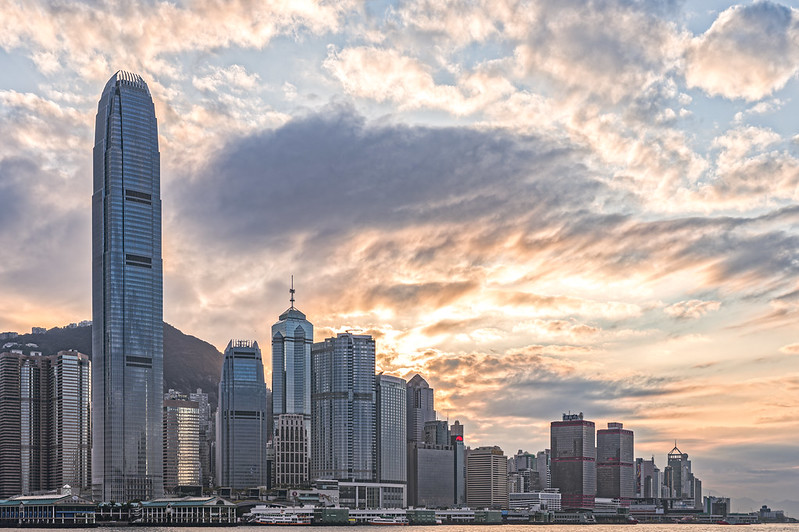In late 2020, China declared victory over poverty, marking the end of a five-year campaign to raise rural incomes above $600 per year. In the essay “The Countryside Through A Daughter In-Law’s Eyes,” though, Huang Deng wrote movingly about the harsh realities of life outside of China’s urban areas. The poverty alleviation campaign was intended to address some of those issues, yet significant questions remain about who, exactly, accrued the benefits. Nevertheless, in a triumphant speech given in the Great Hall of the People this week, Xi Jinping reiterated that the campaign was a complete victory. Bloomberg News provided a breakdown of Xi’s speech and an accompanying People’s Daily article that lauded him, personally, for the campaign’s successes:
Xi said in a speech Thursday that some 10 million people have been lifted out of poverty annually during his eight years in power, at a cost of almost 1.6 trillion yuan ($248 billion). The event at the Great Hall of the People in Beijing, including an awards ceremony for key participants in the campaign, was televised live to the nation of 1.4 billion people by state media.
The ceremony highlighted Xi’s personal role in the fight, honoring a town in the northwest whose officials he worked with earlier in his career and mentioning his visits to impoverished areas. “I insisted on looking at real poverty, understanding the real efforts to reduce poverty, helping those are in real poverty and achieving real poverty alleviation,” Xi said in a speech that lasted more than an hour.
[…] The People’s Daily ran a three-page, 22,000-character article Wednesday summarizing the poverty-alleviation orders Xi has issued since taking power. His efforts “achieved great success and made a great contribution to global progress,” the party’s official mouthpiece said. [Source]
That's a narrative framework that:
a) Crushes Hu Jintao, Jiang Zemin, *and* Deng Xiaoping together
b) Puts them in Mao's shadow.
c) Raises up the post-2012 period
d) Starts down path of presenting post-2012 as culmination/solution to *millennia* of Chinese history.— Carl Minzner (@CarlMinzner) February 25, 2021
(2/x) Recognize how unusual the format is. Page 2 – single article, entire page of text (no photos). Sure, you sometimes see that for full page releases of Party documents, or reprints of high level speeches. But not usually for single articles.
— Carl Minzner (@CarlMinzner) February 23, 2021
(4/x) The language isn't cold reporting. It's emotive. Xi is depicted *personally* as the caring, moving leader who is moved by the people's pain and takes action.
— Carl Minzner (@CarlMinzner) February 23, 2021
(8/x) Ha! Gets even better. Today's @PDChina has an article in *exactly* the same vein as yesterday. But, get this – today, it starts on page one, and occupies ALL of page 2 *and* 3.
Number of uses of Xi Jinping's name? 139 (!!!)
— Carl Minzner (@CarlMinzner) February 24, 2021
At The Washington Post, Lily Kuo wrote about the political significance of Xi’s declaration, and some netizens’ skepticism about the numbers:
Over the last eight years since Xi became head of the ruling Communist Party, the government has spent as much as 1.6 trillion yuan ($248 billion) on poverty alleviation — as local officials went door to door to identify impoverished households, delivering assistance from loans to farm animals. Experts say the policy is key to Xi’s legacy as he works to cement his position as the country’s most powerful leader since Mao Zedong, China’s paramount leader and founding father of the Chinese Communist Party.
“Xi Jinping claimed victory in the war against the coronavirus and now he is claiming victory in the war against poverty. This gives Xi the ability the claim victories in two major challenges facing China. This is crucial if you are trying to position yourself as a leader akin to Mao,” said Carl Minzner, a professor at Fordham Law School and author of “End of an Era: How China’s Authoritarian Revival Is Undermining Its Rise.”
[…] “Can someone tell me what the official standard is for eliminating poverty? Why can I still see people on the street begging?” one asked on the microblog Weibo. Another joked, “China has eliminated absolute poverty. That’s right. Everyone is just relatively poor.” [Source]
#China's government says nearly 100 million people have been lifted out of #poverty in the last 8 years.
How have the lives of people in rural areas changed?
Part 2 of our interview with @mmchitwood – who spent years living in a rural village in Yunnan@Geetagurumurthy pic.twitter.com/ujxN8ckNCV
— Danai Howard 丹娜 (@DanaiHoward) February 25, 2021
Chinese media outlets have showered the campaign in praise. Global Times, a state run tabloid, called the campaign a “world miracle” and wrote that it would be the launching point for China’s nation building after the “Two Centenaries”—the hundredth anniversaries of the Party’s founding, on July 1 this year, the People’s Republic of China’s, on October 1, 2049. Some find the story too good to be true. At China Media Project, David Bandurski examined the state-propagated myth of a rural Hunan chili farmer, arguing that the campaign was not simply a social or economic endeavor but also an illuminating example of how media and propaganda outlets work in tandem to “launch satellites” packed with “positive energy”:
By this point, Dong’s story had come full circle. A national movement coordinated from the top had generated demand across the country for exemplary cases. These had trickled back up to the top as local leaders signaled their compliance, offering up lists of local award candidates, like ritual offerings of “positive energy.” Repackaged at the national level, stories like that of Dong Heqin were delivered through outlets like The Paper, Xinhua and the People’s Daily.
[…] There is a slang term in Chinese today that speaks to this basic skepticism, directing suspicion at those boasts that are so enlarged that their seams begin to tear, revealing the stuffing inside. That term is “launching a satellite,” or fangweixing (放卫星), and its history stretches back to the calamitous political actions of the 1950s, when tens of millions starved in the wake of such lies.
[…] These days, the CCP no longer talks in its official discourse about “sending up satellites” of economic or other policy glory. But the phrase remains as a popular reference to absurd and boastful acts of propaganda. And last week, a post on China’s WeChat platform applied the phrase to Dong Heqin’s story. The headline: “Officialdom Launches a Satellite: It is Captured Alive by Netizens!” (官方放卫星,被网友活捉). [Source]
But as this report from Baojing county shows, not everyone in China's rural hinterlands has benefitted from a renewed anti-poverty drive, which has raised questions about how precarity is measured and how funds are allocated to those in need. pic.twitter.com/P6BfIH5Um8
— Sean Gleeson (@seanjgleeson) February 26, 2021
Hyperbolic coverage aside, significant policy steps need to be taken in order to consolidate the real gains the campaign has brought to rural citizens. Towards that end, the Chinese government has created a new National Rural Revitalization Bureau that will lead the next stage of rural development policies. The Bureau’s creation was preceded by an annual policy paper that encouraged financial institutions to invest heavily in the countryside. In an opinion piece published in Foreign Policy, Martin Chorzempa and Tianlei Huang argued that investment should focus on high schools in order to raise rural education levels:
Among migrant workers and the underdeveloped rural communities that depend on the wages they send home, a quiet crisis is taking place—with potentially dramatic consequences for China’s future growth. Despite what the GDP number suggests about the country’s successful handling of the pandemic, China’s longer-term economic risks have only grown—and are a direct result of the crisis in rural China. As Stanford University researchers Scott Rozelle and Natalie Hell document in their meticulously researched book, Invisible China: How the Urban-Rural Divide Threatens China’s Rise, hundreds of millions of rural Chinese face a dangerous lack of human capital and suffer from pervasive health problems, including widespread iron-deficiency anemia, uncorrected myopia, and parasitic intestinal worms. Exacerbated by the pandemic, China’s rural crisis remains largely invisible to outside observers, and even to many Chinese.
[…] China’s leadership knows this is a problem and has taken the human capital issue seriously in the last decade and a half by pouring money and resources into education. But it hasn’t been enough to correct for decades of insufficient attention. A little-known fact about China: Only since 2005 have the first nine years of school been free and mandatory, and even today completing high school after those nine years comes at a steep cost for families. Public high school, which is not yet mandatory, often costs many times the average rural family’s income. Eliminating tuition for poor families would likely lead to better educational outcomes by removing a key barrier, allowing more children to continue school and develop critical skills. [Source]
Hukou system, land-use reform, poor education and low high school attainment rates, rising wages and closing factories mean rural residents may be living their best lives now, but the future is uncertain. New Rural Vitalization campaign must address these 3/
— Matthew Chitwood (@mmchitwood) February 25, 2021
In order to solve the glaring education gap between rural and urban areas, the state is attempting to entice e-commerce workers to head to the countryside. At The South China Morning Post, Yujie Xue reported on the plan to get “talent” into the countryside:
This plan is Beijing’s solution to the challenges that China is facing, as it seeks to cultivate a large domestic market to counter challenges outside the country. Following decades of brain drain and declining investment, the countryside has become a weak spot in China’s economic development: While the expansive region is home to 44 per cent of the country’s population, rural income per capita last year was only 39 per cent that of urban areas.
[…] While it remains to be seen how many skilled workers will answer Beijing’s call, some in China’s technology sector already see a role for themselves in helping China’s countryside cope with its ageing population and labour exodus.
[…] Other Chinese companies have also tried to bring technologies to the countryside. Alibaba Group Holding, the owner of the South China Morning Post, has been promoting so-called Taobao villages since 2009 to help rural residents sell their products online. Pinduoduo, a fast-growing online shopping platform, has been offering week-long training programmes in finance, business operations and online marketing to rural merchants. JD.com, another e-commerce giant, has created rural service centres that use drones and other technologies to expand its logistic capabilities. [Source]
source https://chinadigitaltimes.net/2021/02/in-great-hall-of-the-people-complete-victory-in-the-countryside-a-more-complicated-story/

 (@chenchenzh)
(@chenchenzh) 